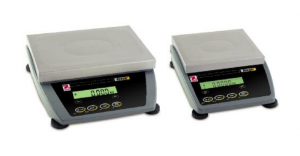 Calibrating, cleaning, and related scale repair services, especially digital scale repair, ensure that companies receive precise, accurate readings of weight measurements for their products. Accurate measurements are essential for a company’s profit and commerce in general. The majority of commercial transactions rely on scales as the price of products is determined by weights and measures (as defined by the commercial measure system).
Calibrating, cleaning, and related scale repair services, especially digital scale repair, ensure that companies receive precise, accurate readings of weight measurements for their products. Accurate measurements are essential for a company’s profit and commerce in general. The majority of commercial transactions rely on scales as the price of products is determined by weights and measures (as defined by the commercial measure system).
Weights govern the price of packaged goods at the supermarket and delicatessens, gasoline at the pumps, farm products—grain, produce, and livestock– even landfills charge fees based upon the trash’s weight. The law requires accurate readings of weight measurements. Whether relating to the transportation of goods or selling them retail, weights, and measures regulations impact approximately fifty percent of the U.S. gross domestic product.
By any measure then, properly calibrated scales are essential for a company’s success. Poor factory calibration or wear from constant use may cause inaccurate scale readings.
- It can lead to underpricing of goods, discrepancies in inventory, reduced profit, and even monetary loss.
- Or it can lead to overpricing, which can lead to loss of credibility, business, and substantial fines if the margin of error exceeds the legal limit.
In either instance, inaccurate readings can hurt companies.
For reliability, having a maintenance program that provides all scale repair services—from inspecting the initial factory calibration settings to regularly cleaning your scales—can provide the accurate readings your company needs to thrive. Let’s take a closer look:
What is factory calibration?
Calibration of scales is a testing method that certifies the accuracy of weight readings. Before final packaging and shipping of scales, manufacturers commonly perform “factory calibration” testing as part of their quality control process conducted by factory QC technicians. The objective of any QC methodology is to make sure that enough tested products, in this case, scales are falling within accepted tolerances to certify them all. In most cases, factory calibration is sufficient enough to perform readings within a reasonable tolerance.
However, in those industrial production environments, manufacturing plants and warehouses that operate within the commercial measurement system, meaning that they operate within regulatory guidelines, having accurately calibrated scales is vital to that company’s success.
How is calibration calculated?
Calibration is calculated by placing a certified mass on the scale to test the weight reading accuracy. If there is a difference in the reading between the certified mass and the scale, the scale needs to be adjusted if it is new or restored if it’s time for maintenance until the readings fall within an acceptable tolerance. Keep in mind that the instruments used in testing may only be capable of measuring a particular range of weight. In which case, a calibration range spanning from zero to a maximum weight of your choosing should be defined whereby calibration can be set at several points along the span to ensure high accuracy.
How often should scales be calibrated?
A number of factors can determine how often scales should be calculated. As mentioned, it’s probably good to calibrate when you first open the box. That said, a combination of manufacturer’s recommendations, usage, environmental conditions, and the necessity to have exact or sufficient weight readings should determine how often your scales are calibrated.
If scales are in use throughout the day, each day of the week, rather than just a few times a week, it’s reasonable to assume that scale calibration should frequently occur under normal wear and tear, e.g., monthly. It may be that the scales are operating in a punishing environment—volatile temperature ranges, dust, grime, and fluids or the scales could be subjected to vibrations, static electricity, or mechanical shock. In such environments, scales should be calibrated on a regular schedule as per the manufacturer or your scale repair service recommendations.
Repair or calibration services.
It may be that some scales need to be calibrated once per month for accuracy, or spot checked throughout the week or only once a year. Contact Worcester Scale Co. to discuss your scale repair service needs. Worcester Scale is an ISO/IEC 17025 accredited calibration laboratory that offers a range of maintenance programs and emergency services, including field service, to perform various types of scale repair services, including weight scale, digital scale, electronic scale, truck scale, and much more.



Leave a Reply